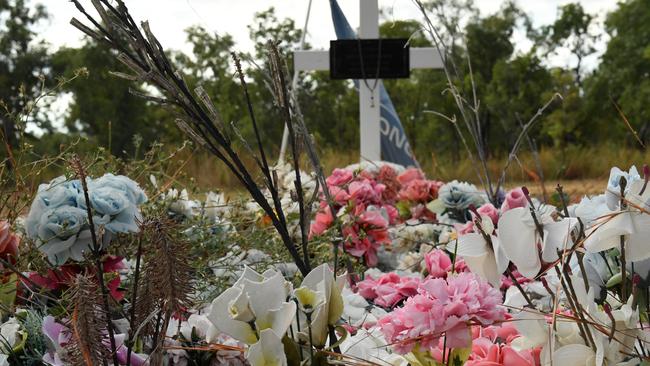New laws will protect sacred burial sites in the Territory
New laws will protect Indigenous burial grounds for future generations. Here’s what the changes mean for Territorians.
Indigenous Affairs
Don't miss out on the headlines from Indigenous Affairs. Followed categories will be added to My News.
THOUSANDS of people across the Territory have been buried in unmarked graves but new laws will help communities protect these sacred sites.
Until last month there were only 15 official burial sites recorded in the Territory, meaning those buried on Aboriginal land have never been legally recognised.
As a result burial records for many communities do not exist.
But new laws will require Aboriginal communities to notify the government of burials sites so the Territory can keep better records of these sacred sites.
In 2018, a team of researchers discovered 175 unregistered graves in the Burunga community cemetery after they were brought in to help find lost loved ones.
At the time, then community development minister Gerry McCarthy said issues with oversight and a lack of documentation of cemeteries had “challenged” multiple Northern Territory administrations for more than a century.
“The Cemeteries Act can be traced back to a 1952 Commonwealth Ordinance …. (and) cover administrative matters such as keeping registers, burial times, depths of graves and visiting hours,” she said.
Under the Burial and Cremations Act 2022 amendments will replace policy that required communities to seek approval for burial, instead they will now simply have to provide notification of a site to have it listed on an official register.
The changes will still respect cultural customers and give custodians autonomy over how burials are conducted, without needing to adopt a Westernised cemetery management approach.
Different practices for the burial, exhumation and disposal of human remains are allowed and take into account economic, social, cultural and regional interests.

The old Burial and Cremation Act predated Aboriginal Land Rights in the NT.
Local Government Minister Chansey Paech said the laws were the first of their kind in Australia.
“This legislation acknowledges the uniqueness of the Northern Territory, empowers decision makers, respects different cultural practices, and ensures access to burial areas and burial records,” he said.
“As Local Government Minister, I am incredibly proud the Northern Territory is leading the way in the delivery of progressive and culturally-appropriate legislation.”
According to the Northern Land Council, the new legislation will require a person to complete a form that notifies government about a burial outside a cemetery.
“If a burial site is in an undeclared area, the notification will also confirm that the burial does not impact on infrastructure, occupied buildings, waterways and other matters. This is to ensure that public health and the environment is protected,” they said in a statement.
“If any details about a burial are culturally sensitive, that information does not need to be provided.”
The NLC has assured community it will be a flexible system.
“The notification is submitted to the Department of the Chief Minister and Cabinet (the Department) so that a burial record can be kept.”




